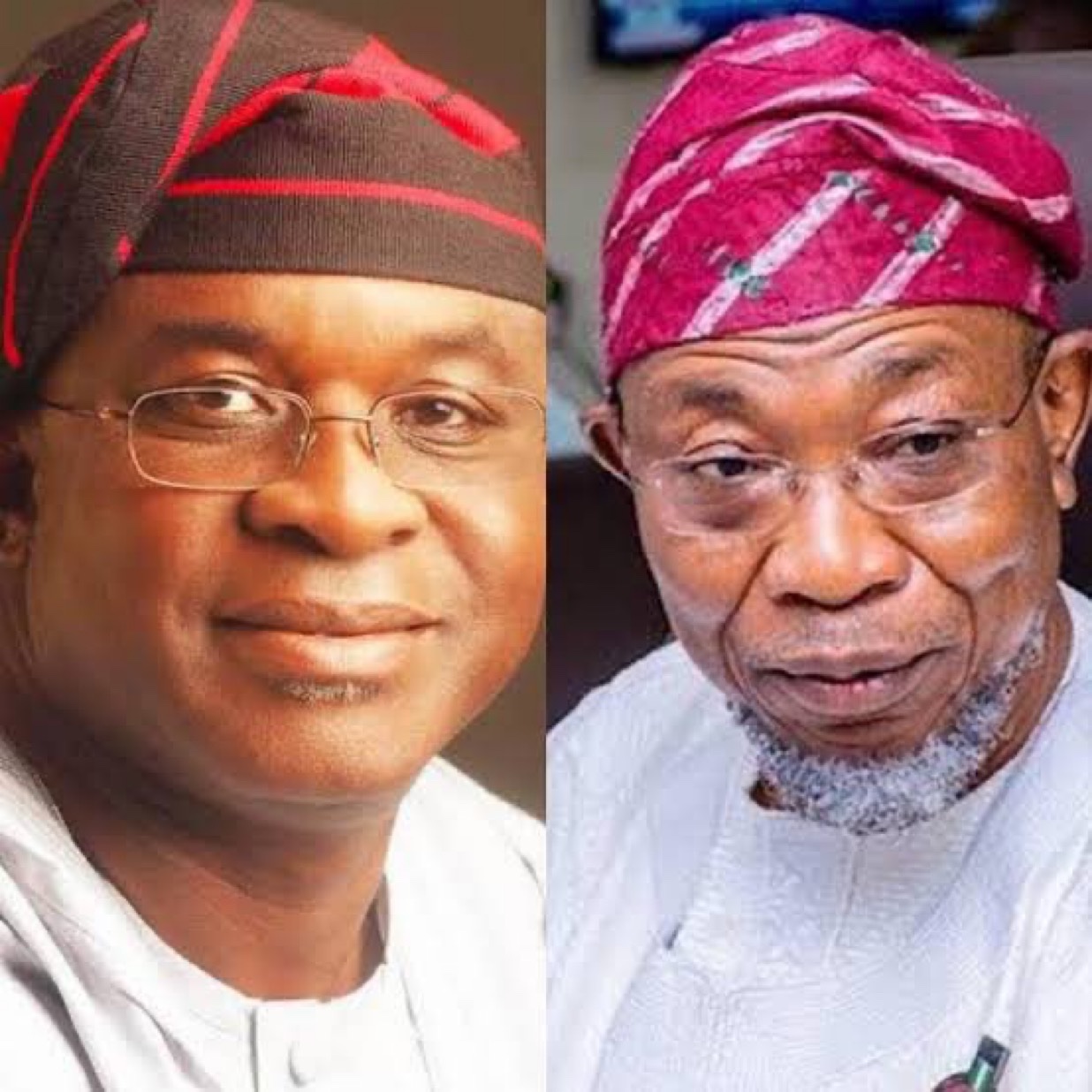
David Mark Emerges as National Chairman of ADC as INEC Officially Confirms New Leadership with Rauf Aregbesola as Secretary

The Independent National Electoral Commission (INEC) has officially acknowledged the appointment of former Senate President, David Mark, as the new National Chairman of the African Democratic Congress (ADC), while former Osun State Governor, Ogbeni Rauf Aregbesola, has been confirmed as the party’s new National Secretary. The announcement marks a significant turning point in the life of the ADC, one of Nigeria’s most recognizable opposition parties, which has over the years sought to assert itself as a credible alternative in the nation’s highly competitive political landscape.
The development was communicated following INEC’s review of the party’s congress and internal reorganization processes, where the commission confirmed that due process was followed in the emergence of the new leadership structure. With David Mark’s acceptance of the top role, the ADC is now under the stewardship of one of Nigeria’s most experienced politicians, while Aregbesola’s position as Secretary adds further weight to a leadership team that analysts believe could dramatically alter the fortunes of the party ahead of future elections.
David Mark, a retired army general and two-time Senate President who presided over the upper chamber between 2007 and 2015, brings with him a wealth of political experience, deep networks across the country, and a reputation for firmness in leadership. His emergence is already being interpreted as a bold move by the ADC to reposition itself and attract a broader support base, especially from the middle class and political elites who see him as a figure of stability and maturity. Mark, who represented Benue South Senatorial District for decades, was long regarded as one of the most influential lawmakers in Nigeria’s democratic history, and his entrance into the leadership of the ADC is expected to give the party new credibility in the eyes of voters and stakeholders alike.
Equally significant is the inclusion of Rauf Aregbesola as the National Secretary. Known widely as a grassroots mobilizer with strong political roots in the South-West, Aregbesola brings a different but complementary strength to the party’s national structure. His two terms as Governor of Osun State and his stint as Minister of Interior under President Muhammadu Buhari have cemented his reputation as a pragmatic administrator and a seasoned party man. For the ADC, Aregbesola’s presence could mean greater inroads into Yoruba-dominated states and the ability to galvanize support from communities that have long been hesitant to throw their weight behind smaller opposition platforms.
INEC’s recognition of the new leadership is not merely symbolic. It confers legal backing and official legitimacy, ensuring that the David Mark-led executive can represent the party in all electoral matters, from fielding candidates to signing off on coalition agreements. Already, there is talk in political circles that the ADC may be preparing itself for a more assertive role in Nigeria’s unfolding democratic journey. With the 2027 general elections on the horizon, speculation is rife that the party could leverage its new leadership to either contest aggressively on its own or become a crucial force in coalition-building efforts that might reshape the balance of power among Nigeria’s political heavyweights.
The choice of David Mark and Rauf Aregbesola also reflects the ADC’s attempt to merge diverse political traditions into a cohesive national project. Mark, a centrist with roots in the People’s Democratic Party (PDP), and Aregbesola, a staunch progressive linked for years with the All Progressives Congress (APC), embody two different political cultures. Yet their coming together under the ADC umbrella suggests a deliberate strategy to draw from both ends of Nigeria’s ideological spectrum in order to present the party as a big tent capable of accommodating varying interests. If properly managed, this marriage of political tendencies could give the ADC an edge in a country where fragmentation and regional divisions often weaken opposition parties.
The official recognition has already generated significant reactions from across Nigeria’s political space. Some see it as a watershed moment that could elevate the ADC from a fringe player to a formidable contender, while others remain skeptical, questioning whether personalities alone can overcome the structural challenges that have long hindered the party’s growth. For years, the ADC has struggled with internal divisions, low visibility, and limited resources compared to the ruling APC and the main opposition PDP. Critics argue that unless the party can resolve its organizational weaknesses, even the stature of leaders like Mark and Aregbesola may not be enough to break through Nigeria’s heavily entrenched political duopoly.
Supporters, however, are more optimistic. They point to David Mark’s track record of steady leadership during turbulent years in the Senate, where he was praised for maintaining order in a chamber often riven by partisan disputes. They also highlight Aregbesola’s ability to connect with ordinary citizens, mobilize support at the grassroots, and communicate complex policies in relatable terms. Together, they argue, the two leaders represent a blend of establishment credibility and populist energy that could transform the ADC into a vehicle for Nigerians frustrated with the current state of affairs.
In Benue, where David Mark’s influence remains considerable, ADC supporters have begun mobilizing to strengthen the party’s base. Similarly, in Osun and other parts of the South-West, Aregbesola’s loyalists see his appointment as an opportunity to realign their political fortunes under a new banner. The ripple effect of these movements could soon extend to other states, particularly if the party launches an aggressive membership drive and begins articulating a clear policy alternative to the ruling government.
INEC’s acknowledgment also raises broader questions about the evolving dynamics of Nigerian politics. For decades, power has oscillated between the PDP and APC, leaving little room for smaller parties to thrive. The ADC’s new leadership could signal a subtle shift, reminding Nigerians that alternative platforms can still emerge as credible vehicles of representation. Whether the ADC will seize this opportunity remains to be seen, but its decision to entrust its future to two seasoned political figures has already changed the conversation.
In Abuja, political analysts are watching closely, noting that the strategic combination of Mark’s northern and central influence with Aregbesola’s southern and western clout could provide the ADC with a truly national spread. This geographical balance is critical in Nigeria, where ethnicity, religion, and regional loyalties play decisive roles in shaping electoral outcomes. If the new leadership can maintain unity and present a coherent national vision, the ADC might just reposition itself as the long-sought third force in Nigerian politics.
For now, the official recognition by INEC has set the stage for what could be one of the most intriguing political experiments in recent Nigerian history. The African Democratic Congress, under the leadership of David Mark as National Chairman and Rauf Aregbesola as National Secretary, faces the daunting task of proving that it can rise above past limitations and present itself as a serious contender. Nigerians, weary of recycled promises and entrenched power blocs, may be ready to listen—if the ADC can speak with a united and compelling voice.


